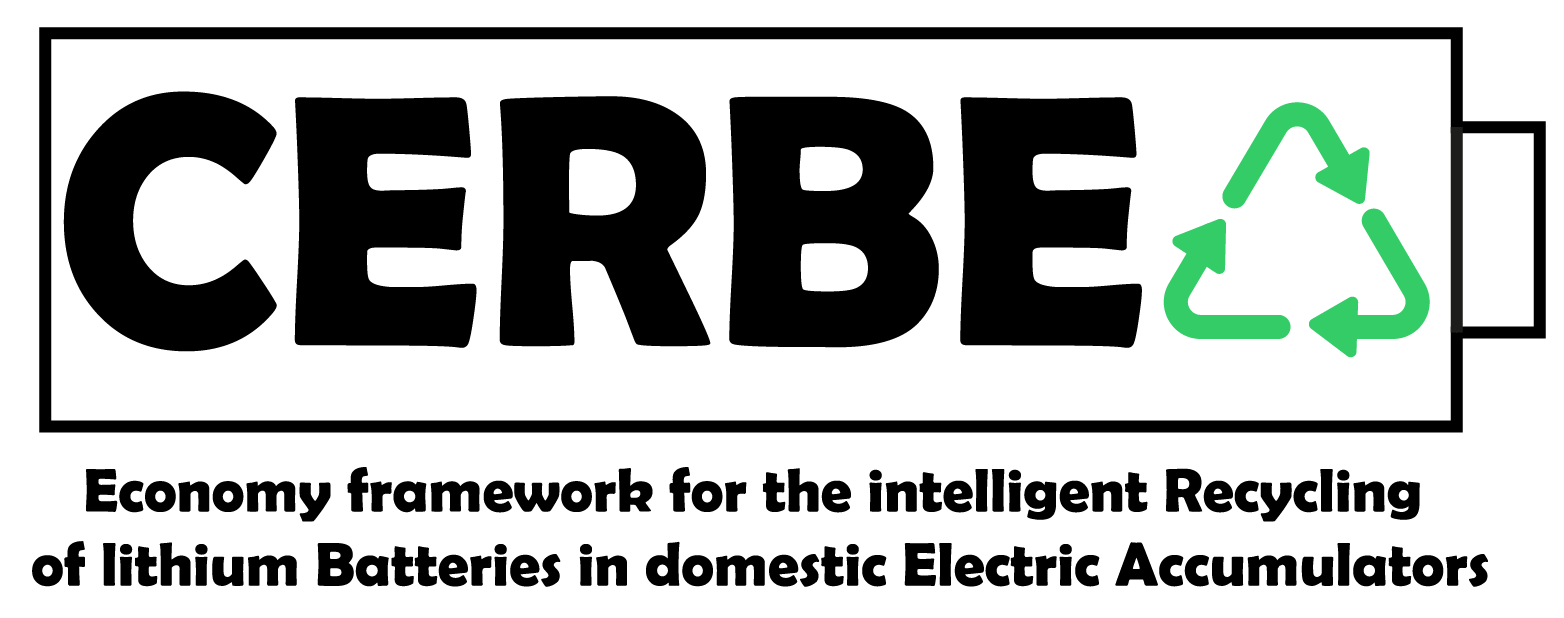
| Work package W1: Organisation and management |
| Objectives: Ensure effective coordination and collaboration among team members; Ensure a fair and transparent decision-making process; Monitor project progress guaranteeing seamless respect of planned schedule, fulfilment of the overall goals within time budget constraints and take corrective actions if necessary; Organisation of meetings; Innovation-Risk-Financial Management; Project reporting. |
| Task 1.1: Project Management |
| Task 1.2 Technical management |
| Task 1.3 Project reporting |
| Task 1.4 Risk management and control |
| Deliverables |
| D1.1 Clippings of the kick-off meeting |
| D1.2 First annual progress report, specifying important results, evolution, and achievements regarding training and transfer of knowledge |
| D1.3 Mid-term report, specifying important results, evolution, and achievements regarding battery recycling, HW and SW component designs during the first two years of the project |
| D1.4 Final report on budget execution, project achievements, major conclusions, future work/collaborations |
| Work package W2.1: CERBEA Platform Development – Circular Economy Framework |
| Objectives: In this stage, the functional requirements of the CERBEA circular economy platform are specified and developed. These include the identification of the platform functionalities for long term stakeholder engagement, taking into account the objectives set out in the project. |
| Task 2.1.1 Research in MTP Functional & Technical requirements |
| Task 2.1.2 Urban Platform design |
| T2.1.3 Functional design and results implementation |
| Deliverables |
| D2.1.1 Report for circular economy framework for the recycling of lithium batteries opportunities |
| D2.1.2 Report concerning programs, models, and strategies of recycling of lithium batteries in urban areas |
| D2.1.3 Report on the rewards campaign model for the promotion of lithium battery recycling based on BlockChain |
| D2.1.4 Final report on the design/implementation of the circular economy framework for Li-ion battery recycling |
| Work package W2.2: CERBEA Platform Development – Battery Validation Platform |
| Objectives: To design the mechanisms and infrastructures necessary to facilitate citizen access, ease of use and efficient functionality of the innovative CERBEA battery validation platform in the urban environments. Key technologies include the design of an IoT sensorisation platform that will include artificial intelligence for battery health testing. For an optimal and agile measurement, it will be necessary to develop a proprietary hardware device in charge of massively validating a large number of batteries at the same time. Also, this work package includes planning physical battery drop-off and recovery stations to receive, evaluate, recondition and reuse Li-ion batteries, feeding the needs of the accumulator units for a truly effective circular economy framework. |
| Task 2.2.1 Design of infrastructure to receive discarded batteries |
| Task 2.2.2 Design & develop IoT battery testing platform |
| Task 2.2.3 IoT Platform optimization and multisource connectivity |
| Task 2.2.4 Platform scaleup and upgrade |
| Task 2.2.5 AI training |
| Deliverables |
| D2.2.1 City agreed guidelines for the Li-ion Battery Recovery Infrastructure |
| D2.2.2 Report on IoT sensorisation platform connectivity & cloud infrastructure architecture |
| D2.2.3 AI training guidelines |
| Work package W2.3: CERBEA Platform Development – Manufacture of domestic energy Accumulator unit |
| Objectives: CERBEA will define, design and test customized components for the accumulator unit. In this sense, WP2.3 aims to design all the corresponding hardware and software subsystems to manufacture a functional accumulator prototype. |
| Task 2.3.1 Define accumulators device requirements |
| Task 2.3.2 Development of software components |
| Task 2.3.3 Development of hardware components |
| Task 2.3.4 Production of accumulator prototype |
| Deliverables |
| D2.3.1 Requirements specification report |
| D2.3.2 Accumulator component design and manufacturing report |
| Work package W3: Demonstration and Validation |
| Objectives: Demonstration of CERBEA framework functionality using the subsystems researched & developed in WP2.1, WP2.2 & WP2.3. Subsystems will be integrated to develop case study & allow visualizing progress made. The integration, validation & testing activities will allow an iterative, constant, incremental development. In this way, possible deficiencies and improvements to be incorporated in the iterative process of system can be assessed. The final system will integrate software, hardware, networks, devices & monitoring system, to work as a whole. |
| Task 3.1 Pilot plan |
| Task 3.2 System Integration & Validation |
| Task 3.3 Pilot execution |
| Task 3.4 Cost-Benefit analysis |
| Deliverables |
| D3.1 Pilot Plan and integration guidelines |
| D3.2 Report of pilot demonstration |
| D3.3 Cost-benefit analysis of integration of energy storage devices-report |
| Work package W4: Dissemination and Exploitation |
| Objectives: Primary goal is to exploit and disseminate the CERBEA results to a wide audience and increase visibility, to attract new broader cross-sectoral collaborations with urban stakeholders around the world and after project’s end to help propel the project’s innovations to reach the marketplace for maximum impact. |
| Task 4.1 Dissemination and Exploitation |
| Task 4.2 Communication |
| Task 4.3 IPR |
| Deliverables |
| D4.1 Project Website Launch |
| D4.2 Plan for Exploitation and Dissemination strategy including communication activities |
| D4.3 Launch of Co-creation urban laboratory social platform |
| D4.4 Workshop-1 proceedings |
| D4.5 CERBEA publication list by year-2 |
| D4.6 Workshop-2 proceedings |
| D4.7 Clipping of online and offline news and activity concerning CERBEA |
| D4.8 CERBEA publication list by year-3 |
| D4.9 Accumulators distribution strategy plan |
| D4.10 Updated Plan for Exploitation and Dissemination strategy including communication activities |
| D4.11 Dissemination and transfer of knowledge impact Assessment |
